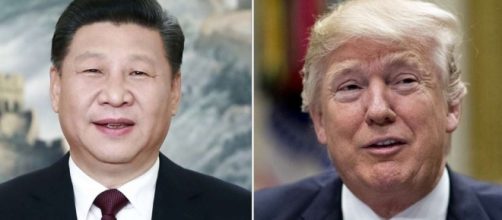U.S. - china relationship suffered another blow as plans of an American arms deal with Taiwan worth $1.42 billion came to light. Beijing was enraged as the action will undermine mutual confidence between the two countries in the midst of tension with North Korea.
What is the U.S. purpose of providing arms to Taiwan?
The arms deal was included in the proposal sent to Congress of renewing negotiations with Taiwan to open its ports for American warships. The action was in line with U.S. policy of protecting its allies in Asia from threats posed by North Korea.
The deal was also put forward after the White House again battered Beijing to rein in Kim Jong-un to the diplomatic table and halt his nuclear ambition.
According to U.S. State Department spokesperson Heather Nauert, the arms package included torpedoes, early warning radar support, high-speed anti-radiation missiles and missile components. The package is expected to boost Taiwan's ability to intercept incoming missiles and improve its anti-ship capabilities. Nauert also emphasized that the deal is to support Taiwan's self-defense capability against aggressors.
As of the moment, the arms deal is still under approval by Congress. If it passes, this will be U.S. President Donald Trump's first arms deal with Taiwan after taking office.
How will China react to this?
China is not happy with the U.S. continuing efforts to protect Taiwan despite agreeing with the "One China Policy." The policy recognizes the existence of only one Chinese government, and America respects this. However, China sees the "One China Policy" as the basis for its claim of Taiwan, which Beijing sees as a rebellious province that will soon rejoin China in the future.
The tension between China and Taiwan continues, especially now that Beijing is slowly modernizing its army, air force and navy. Earlier this week, China had unveiled its new home-built missile destroyer, showcasing the massive industrial capacity of the country and its ability to develop and build high-tech warships that are on par with regional navies like Japan and South Korea.
The United States is always pressuring China to have a more active role in pressuring North Korea into halting its nuclear ambition. However, China hasn't done much to sway the belligerent pose of Pyongyang. However, according to Chinese diplomats, the U.S. presence in Asia, especially its continued support of Taiwan is a political method to pressure China into action. Beijing is adamant to lay claim over the entire island of Taiwan, but only the U.S. is hindering an all-out invasion.


